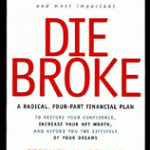Nearly one in six elderly unmarried women age 60 and over (17 percent) was poor in 2008, and 16 percent of those 75 and older were poor. (Unmarried Women Hit Hard by Poverty, Center for American Progress)
I was on the phone not long ago with a friend, I’ll call her Arlene, who has been absent from my life for some time. Because she works two jobs (it was 2.5 for awhile), we had been playing phone tag for the last few days and that may also be why we’ve been out of touch. We caught up with each other because I was housebound, beginning the infamous ‘prep’ for a colonoscopy. I might have to end the conversation abruptly, I told her, but would call her back. We shared a laugh over that. She is a few years younger than I am and is yet to have this routine procedure. In fact, she had not seen a doctor or had any kind of screening for a long time. “I haven’t had health insurance for ten years. I couldn’t afford it.”
What’s wrong with this picture? A lot, both on the micro and macro levels. My friend is well-educated and has worked in the entertainment industry for her entire career, holding glamorous jobs — or so they seemed to me — at some of the best companies on both coasts. We were both in our 50s when we met, and she thought the future would continue in a direction commensurate with her education, talent, experience, and good looks. She fully expected to continue to live in a home she owned, in an urban area with all the arts and culture she was used to. She was my idea of an independent woman: not looking for a man to complete her, but not against the possibility that Mr. Right could turn up.
So far this hasn’t happened, and she appears to have grown comfortable with aging as a single woman. And according to an AARP study, many older women would agree, see: The Secret Lives of Single Women. What isn’t such a rosy picture is what aging as a single woman might mean to her financial future, especially if she becomes ill or disabled. Mothers of single daughters (I am one), listen up!
Arlene’s is a familiar enough story: as her industry began to contract, she lost better jobs to younger people. This is systemic, apparently, and not just at the level of female superstar who disappear from the screen at a certain age (Meryl Streep the obvious exception). Over the last few years, Arlene has mostly worked freelance and so health insurance has been beyond her means. “Who would have ever thought I would be looking forward to Social Security and Medicare?!” she asks. Until she reaches the age of eligibility for these benefits (and possibly even when she does), she will likely remain one of the working poor: healthy (fortunately) enough to work, able to pay her bills (just), saving nothing, and earning too much to qualify for Medicaid. It’s a tough situation for anyone, but worst if you’re a woman and earn less to begin with.
Sexism combined with ageism might have done my friend in, except for her remarkable resilience, sense of humor, and the support of female friends of which she has in abundance. Friends for company, advice, conversation, comfort and sometimes financial help. Arlene doesn’t expect a fix from inside the Beltway. She’ll keep working; she’ll eat right, exercise, keep herself healthy; she might relocate where housing and living costs are lower. She’s nobody’s fool. Those of us who are happily partnered need to look out for our single sisters of a certain age as well as our unmarried daughters of an independent mindset. And I’m not talking about finding them a date for Saturday night.
Resources:
Unmarried Women Hit Hard by Poverty
Wiser (Women’s Institute for a Secure Retirement)
